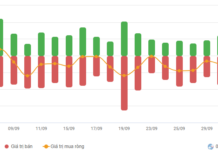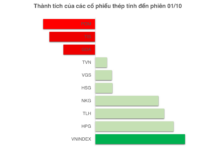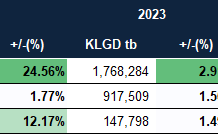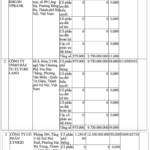At the specialized session of Committee I on the afternoon of September 30, 2025, themed “Developing Financial Technology and Digital Assets through the Public-Private Co-Creation Model”, various initiatives and proposals from businesses were presented. The session was co-chaired by the Board for Private Economic Development Research (Board IV).
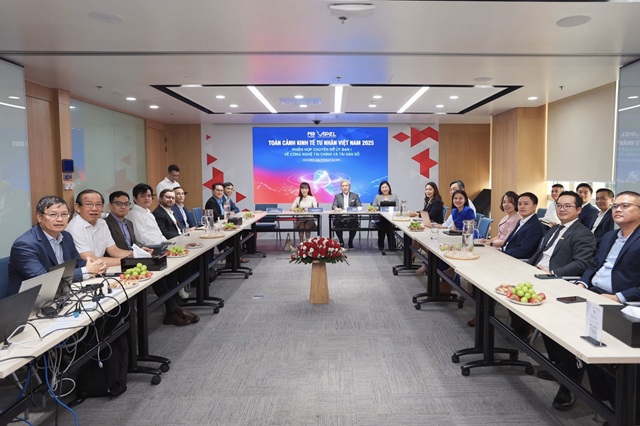
Speakers at the session on the afternoon of September 30, 2025.
|
Digitalization: The Key to Breakthrough Development
In his opening remarks, Mr. Don Lam, Deputy Head of Board IV and CEO of VinaCapital, emphasized the strategic importance of applying technology in the financial sector. With over 20 years of experience in investment in Vietnam, he believes it is time for the nation to focus on harnessing its internal strengths, with comprehensive digitalization—especially in finance—playing a pivotal role.
He expressed confidence that the integration of technology and finance would be the key to achieving significant economic breakthroughs, reducing costs, enhancing international market connectivity, and fostering innovation and sustainable growth, particularly for the private sector.
The “Rescue” of HOSE and Lessons in Public-Private Mechanisms

Ms. Nguyen Thi Phuong Thao, Chairwoman of Sovico Group, speaking at the session.
|
Ms. Nguyen Thi Phuong Thao, Chairwoman of Sovico Group, shared a real-world example of private sector capabilities. In 2020, FPT and Sovico proposed a solution to prevent the Ho Chi Minh City Stock Exchange (HOSE) from facing system overload, a threat to market stability.
Recognizing that the Hanoi Stock Exchange (HNX) system, developed by FPT, could be upgraded to address HOSE’s issues, Ms. Thao and FPT Chairman Truong Gia Binh proposed a feasible technical solution.
Despite their expertise and willingness to invest, the major hurdle was the absence of legal provisions allowing state agencies (HOSE, Ministry of Finance, State Securities Commission) to accept solutions from private enterprises.
After directly presenting the initiative to the Prime Minister at a forum, the project received approval. However, implementation faced challenges due to regulations, including securing travel permits for 200 tech experts during the COVID-19 pandemic and project acceptance procedures.
The “HOSE 100” project was completed in 100 days at a cost of just a few million USD, compared to a 12-year, multi-million USD foreign solution that remained unfinished. The system has operated smoothly for four years, handling trading sessions of up to 2 billion USD.
This success demonstrates that Vietnamese private enterprises possess the capability, ambition, and resources to tackle national-level challenges. However, the biggest obstacle remains the “mechanism.” With Resolution 68 affirming the private sector’s role as a key driver, Ms. Thao urged business leaders to boldly pioneer and contribute specific projects and action plans to turn opportunities into reality.
Challenges and Solutions from Businesses
Mr. Tran Quy, Director of the Vietnam Institute of Digital Economy (VIDE), proposed a four-point action framework:
First, the biggest challenge is institutional. There is a lack of legal frameworks for P2P models, digital banking, and digital assets. We must move beyond the mindset of “banning what cannot be regulated” and embrace risk for innovation. High-quality human resources are also scarce.
Second, he proposed two national-level projects: a National Digital Identity and E-Contract Platform, and a Carbon Credit/Renewable Energy Trading Platform on blockchain.
Third, establish dedicated task forces for major projects.
Fourth, implement a “one-stop, one-stamp” mechanism. ViPEL should act as the sole coordinator, serving as a “direct flight” to resolve issues for pilot projects, rather than requiring approvals from multiple ministries.
Ms. Truong Ly Hoang Phi, Vice Chairwoman of the Ho Chi Minh City Young Business Association, emphasized that digital transformation is essential. She called for programs to support SMEs in digitizing to generate data for credit assessment.
She also proposed a Public-Private Matching Fund, where the government matches private investments (e.g., 50-50) in high-risk emerging technologies.
Sandbox mechanisms must be expedited. A 5-7 year approval process for sandboxes is too slow. A dedicated sandbox management board is needed to reduce approval times to 6 months to 2 years.
Additionally, tax incentives and capital support should be provided to Vietnamese startups partnering with major domestic and international tech corporations.
|
The ViPEL Model and a New Approach Ms. Pham Thi Ngoc Thuy, Director of the Board IV Office, introduced the Vietnam Private Economic Landscape (ViPEL) model, developed amid growing national capacity-building needs and Party resolutions recognizing the private sector’s role in major tasks. However, a robust and flexible public-private coordination mechanism remains lacking. ViPEL introduces a new governance model: “Public-Private Co-Creation for National Development.” Its goal is to maximize societal resources and leverage the combined strengths of both sectors in implementing national economic development strategies. The public sector (government, ministries) is responsible for creating a favorable policy environment and legal framework. The private sector (businesses) contributes financial resources, knowledge, technology, human capital, and management expertise. This model is not a “give-and-take” or one-way delegation but is based on mutual commitment, with transparent and regular monitoring and evaluation mechanisms. ViPEL will operate on two parallel tracks: (i) rapid action focused on specific projects to demonstrate effectiveness, aiming for 20 major national projects, 200 sector/local projects, and 2,000 grassroots projects by 2030; and (ii) designing practical industry development strategies (finance, infrastructure, healthcare) for business participation. ViPEL is governed by a Steering Council and four specialized committees: Committee 1 on Emerging Technologies and Innovation, Committee 2 on Infrastructure and Competitive Industries, Committee 3 on Manufacturing, and Committee 4 on Human Resources and Services (healthcare, tourism, retail). The Steering Council includes six members: Truong Gia Binh (FPT), Nguyen Thi Phuong Thao (Sovico), Don Lam (VinaCapital), Vu Van Tien (Geleximco), and Cao Thi Ngoc Dung (PNJ). |
“Public-Private Co-Creation for National Development”
Defining Criteria for Key Projects under the “Public-Private Co-Creation” Model
– 8:11 PM, September 30, 2025
Billionaire Nguyen Thi Phuong Thao and Truong Gia Binh Discuss Strategies to Revive HOSE
The riveting behind-the-scenes tale of the dramatic “rescue” of the HOSE platform from a crippling order congestion crisis four years ago was recounted with raw emotion by billionaire Nguyễn Thị Phương Thảo at ViPEL.
Shaping Criteria for the Flagship “Public-Private Partnership for Nation-Building” Project
The essence of the “Public-Private Partnership for Nation-Building” initiative is rooted in the belief that the responsibility of building the nation and fostering economic growth is a shared endeavor. Whether it’s a large corporation, a small business, or simply an individual choosing to support Vietnamese products and services, every contribution plays a vital role in achieving our collective vision.
Breaking: Another Securities Firm Invests in Establishing a Crypto Asset Trading Platform
CAEX is a registered entity specializing in providing services related to cryptocurrency and digital assets.
17 Million Vietnamese Traders Handle $100 Billion in Crypto Transactions Abroad
With over 17 million Vietnamese actively trading cryptocurrencies—generating an estimated annual transaction volume exceeding $100 billion—the entire ecosystem operates exclusively on foreign exchanges. This underscores the urgent need to transition to a regulated domestic marketplace, ensuring tax compliance and seamless integration within Vietnam’s financial infrastructure.

